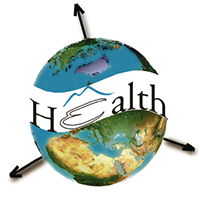Original Articles
Vol. 14 No. 2 (2019)
A geospatial model to determine the spatial cost-efficiency of anticoagulation drug therapy: Patients' perspective

Publisher's note
All claims expressed in this article are solely those of the authors and do not necessarily represent those of their affiliated organizations, or those of the publisher, the editors and the reviewers. Any product that may be evaluated in this article or claim that may be made by its manufacturer is not guaranteed or endorsed by the publisher.
All claims expressed in this article are solely those of the authors and do not necessarily represent those of their affiliated organizations, or those of the publisher, the editors and the reviewers. Any product that may be evaluated in this article or claim that may be made by its manufacturer is not guaranteed or endorsed by the publisher.
Received: 29 August 2019
Accepted: 5 October 2019
Accepted: 5 October 2019
1998
Views
956
Downloads
26
HTML








